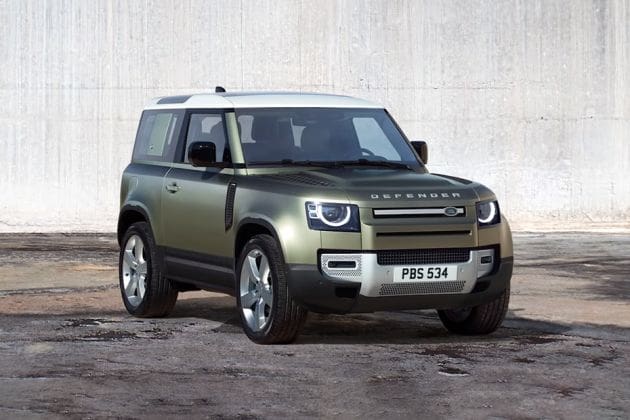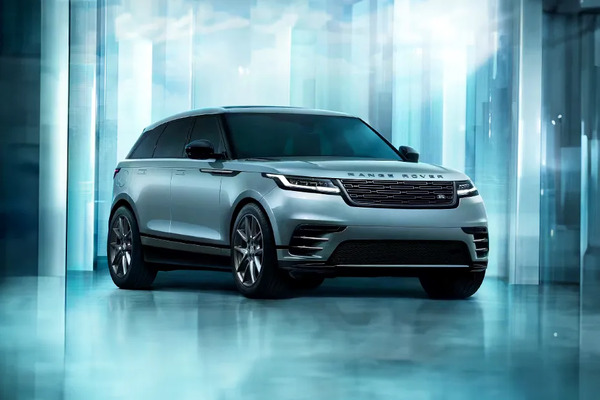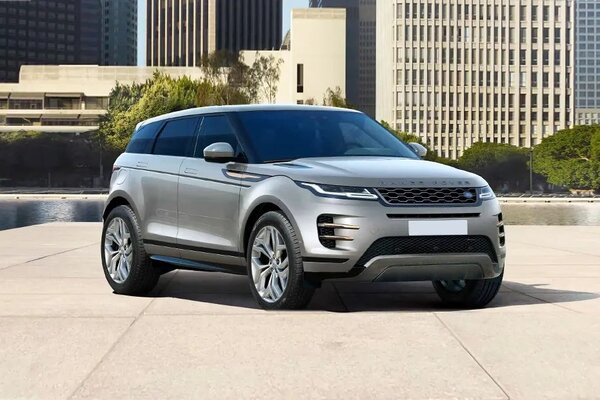Yearender special: Automakers that have won big or lost ground going into 2021
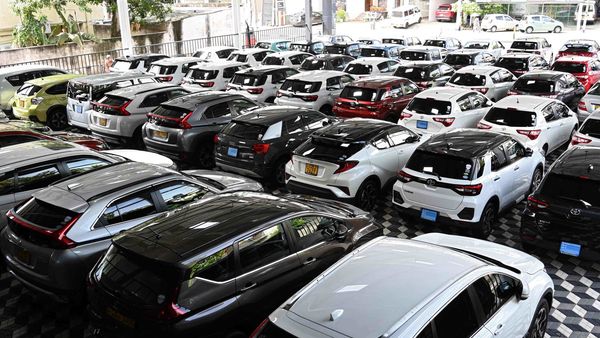

If you asked automakers in April or May about the outlook for the rest of 2020, answers would have been grim.
Plants around the world were shut down, production stalled, workers were furloughed, sales plummeted, and billions of dollars were lost. Early estimates from IHS Markit had yearend U.S. sales barely cresting 12 million new vehicles.
Also check these Vehicles
By December, many automakers hadbounced back—and then some. IHS now predicts 14.5 million new-vehicle units will besold in the U.S. this year, down roughly 3 million units from 2019. Cox Automotive puts the number at 14.4million, down 15.3% year-over-year.
“It’s still a pretty big drop," says Stephanie Brinley, an automotive analyst for IHS Markit, “but better than we thought was going to happen in March when we shut the country down."
Americans, it turns out, still want to buy new cars. They’re also buying homes,classic cars,and, in general, a lot of fancythings.
Credit thefederal stimulus, says Brinley, plusimproved online sales and configurators andpent-up consumers with time on their hands and a yearning to get out: “People who were already interested in buying a new car went and did it anyway, despite the Covid situation."
Some automakers have responded better to the shifting markets than others. The pandemic has enabled them to stop producing cars that didn’t make money, rein in incentives, trimbudgets for efficiency, and become more disciplined regarding supply and demand. Some could even come out of the pandemic stronger, says Kevin Tynan, the senior automotive analyst for Bloomberg Intelligence.
“Our headline sales number may not be 17[million], but it’s a lot healthier than when it was 17.5 million, and 30% of that was from unprofitable cars," Tynan says. “We have spent decades trying to get to this."
Final reports will come in early January, but from thisnearly yearendvantage point, it’s easy to see which automakers and brands in the U.S. came out looking stronger, given the circumstances—and which didnot.
To compile this list, weconsidered all different aspects of what makes a car manufacturer and specific brands healthy:sales rates, market share, the depth and variety of portfolio offerings, a brand’s position within its holding company, the quality and performance of its products, and additional analysis from Bloomberg Intelligence, IHS Markit, and Cox Automotive.
WINNERS
Hyundai
Hyundai Motor Co.has been one of the biggest gainers of U.S. market share in 2020, according to a Dec. 14 report by Cox Automotive analyst Vanessa Ton.
Hyundai succeeded by reaching younger, more affluent customers who hadhigher credit scores, Ton says. Nearly 45% of Hyundai buyers have $100,000-plus household incomes, compared with 33% in 2015;and 30% are aged18–44, compared with 24% in 2015.
“Hyundai has been strengthening its affordability and fuel efficiency imageries for years, while putting a history of mediocre quality in the rearview mirror,"Ton wrote in her yearend analysis. “In times of economic uncertainty, the value proposition is essential."
Also Read : Hyundai buys GM's car plant in Russia's St. Petersburg
Tesla
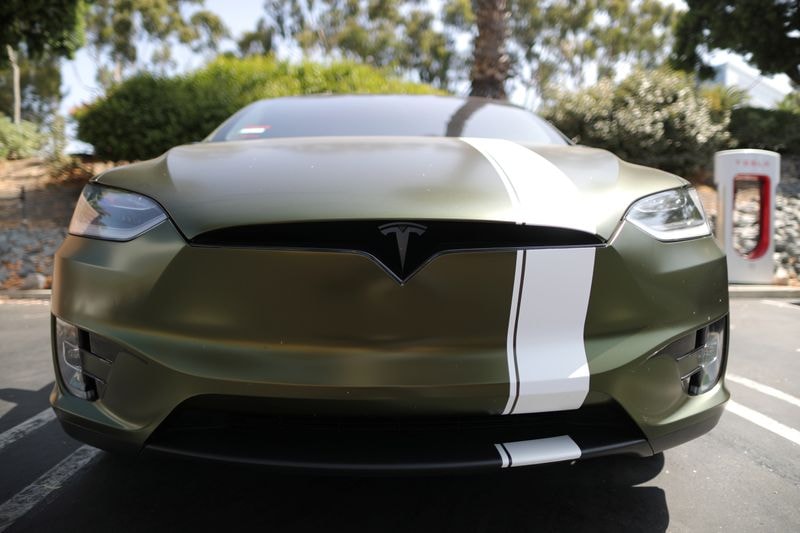

The best-performingautomotive stocks this year have been electric startups such asNio, Li Auto, and for a time, Nikola. But theyall still pale against the 17-year-old incumbent, Tesla Inc., whose shares have soared by as much as 700% in 2020, minting millionaires out of its most loyal fans. On Dec. 21, the company was added to the S&P 500 Index. (It was such a big addition that S&P Dow Jones Indices debated whether Tesla should be added all at once or in two separate pieces.)
With a value that reached as high as $649 billion—that’s morethan the collective value of the world’s seven largest carmakers at the start of 2020, by the way—Tesla isthe most valuable car company in the world.
Tesla has saidit expects to deliver a half-million of its sufficiently-executed-to-achieve-cult statuscars and SUVs this year. (Some 180,000 cars of those cars need to come in the final quarter to hit that figure.)Much of that demand is driven byChina, where it sells more EVs than anywhere else. Still to come: That Blade Runner-esque Cybertruck we’ve been hearing about for more than a year.
General Motors and Ford
General Motors Co.is the nation’slargest legacy automaker. Ithad a $4 billionthird-quarter profitand has used 2020 to set itself up for a boldfuture, announcing plans to produce 30 electric vehicle models by 2025, starting with the goldstandards for Detroit car lovers:Cadillac and Hummer. All told, GM has already started onspending what it says will be a total of$27 billion in an effort to remake 40% of its lineup.
Ford Motor Co., meanwhile, reported a healthy $2.4 billion in net income in the third quarter of this year. It has already shown signs of a potential upswing in earnings growth, thanks to its “global redesign"initiative (which streamlinesoverseas operations and eliminates poorly performing products) and an upcoming lineup of model debuts and announcementsthat includes an electric pickup (due in 2022), amodern Broncoand Bronco SUV, andMustang Mach-E electric SUV.
Also Read : General Motors, Ford seen lagging Paris Climate Target
It helps both Ford and GM that full-size pickup trucks in particular represent a $125 billion industry, according to research compiled by Bloomberg Intelligence’s Tynan, with compact pickup trucks representing an additional $22.4 billion: “Trucks are going to be near 80% of[the U.S. automotive segment] by the end of this year. It’s going to be 90% in the future."
The pickup segment will be the key to recovery for automakers and dealerships in 2021, Tynan continues. No other group can generate profit as quickly. “The automakers that are falling behind are the ones that don’t get that."
While Tesla may be out “conquering hamlets, fighting these little battles with EVs, and the [compact car] Model 3," he says,“Ford and GM are rolling out the big artillery to the battlegrounds of pickup trucks—they’re ready for those EVs."
PorschePorsche AGunveiled a whopping 17new model iterationsthis year, including the next-generation Porsche 911 and additional versions of its electric Taycan sedan. That number risesto 33 new models if you include such mid-cycle refreshes as16 Panamera variantson top of other new Panamera models likethePanamera 4S E-Hybrid in sedan, Executive,and Sport Turismo variants, and thePanamera Turbo S.
It’s a very confusing rundown—but very effective. Aside from having its Porsche 911 Turbo S named the best new car of the year, Porsche generated revenue of €19.4 billion ($23.7 billion)and a 10.4% return on sales in the first nine months of 2020, a feat that Porsche executives are rightly calling a success. To wit: More than 25,400 911s were delivered—a 1% increase over 2019.
Rivian
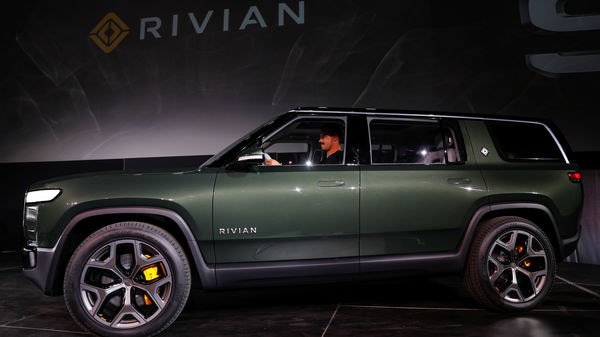

Although it has yet to make and sell cars, Michigan-based Rivian positioned itself perfectly in 2020 to capitalize on the comingwave of electric pickups. It received$6 billion in infusions from the likes of Amazon.com and Ford itself since 2019. By July, Rivian had nearly doubled the $2.85 billion it raised in all of 2019 with a$2.5billion round of investment led by T. Rowe Price Associates Inc.
Whether or not this translates into success when the Rivian R1T truck arrives in summer 2021, one thing is certain: Tesla is on the offense. InJuly itsued Rivian for allegedly poaching employees and stealing trade secrets; soon after, former Tesla employeeNick Kalayjian joined Rivian to oversee engineering and product.
LOST GROUND
Nissan
In May, Nissan reported its first fiscal year loss in a decade and its biggest loss in the past 20 years; by Nov. 12, Nissan had started to flatten out its decline but still expects to see an operating loss of$3.2 billion for the fiscal year to March, likely to be the largest blow toany major automaker.
Chalk it up to the company’sbeing in the early stages of a massive cost-cutting and turnaround plan.
And a lack of exciting product: Even the line-topping Nissan GTR fared poorly in its most recent Bloomberg review. Despite the fact there are rumored talks of a possible Nissan electric truck, so far it can’t compete in the essential truck space: U.S.sales of the Nissan Titan full-size pickup were down 24%, to 19,403, for the first three quarters of this year, compared with more than 589,000 deliveries of the winning Ford F-Series pickup, which fell just 11% overthe same period.
“They’re in every segment, but they’re not the model in any segment—there’s always some other thing that’s always a little bit better," Bloomberg Intelligence’s Tynan says. “There’s an identity crisis of what exactly is Nissan and why would I buy them. I don’t know the answer to that any more. I think they have a lot of stuff that is just ‘also ran.’"
Also Read : Twenty years ago, Nissan squeezed suppliers. Now, it needs their help
Charlie Chesbrough, the senior economist and senior director of Industry Insights for Cox Automotive, hasa similar outlook.
“Nissan, besides ongoing management issues, is being plagued by old products and big drops in fleet sales," he said viaemail,noting that the situation should improve in 2021. “New Rogue, Frontier, Pathfinder are scheduled to rollout in coming months, so more consumer interest should follow.Fleet activity should pickup in 2021, so this may help Nissan’s overall sales numbers as well."
A representative from Nissan said that the brand is “fully committed" to Nissan Next, the plan launched in 2020 to build a moresustainable business.
“New models launched this year such as the all-new Sentra and Rogue demonstrate our focus on giving customers what they want, with safety, technology, design and value that exceeds their expectations," the spokesperson said in an emailed statement. “You will see this continued shift in Nissan showrooms in 2021 with five additional new models, along with a continued emphasis on putting the customer first in everything we do."
Maserati and Alfa Romeo
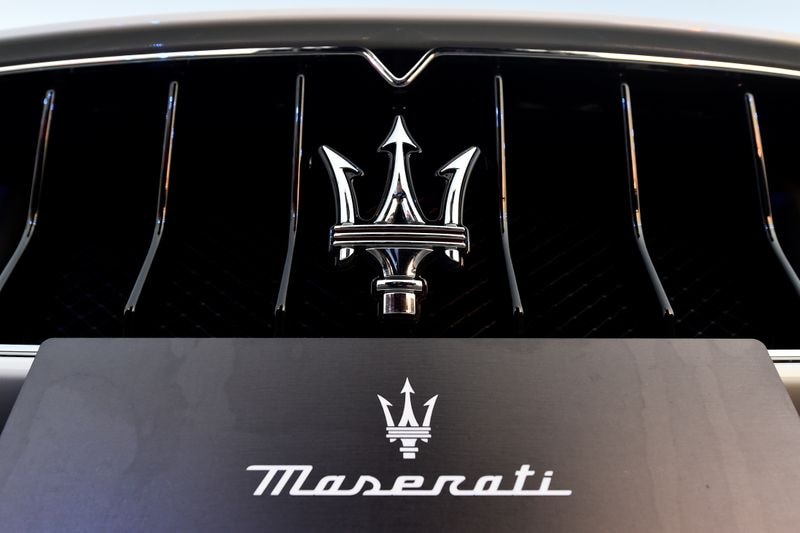

While parent company Fiat Chrysler Automobiles NVhas popular pickups such the Ram to help it tap the lucrative truck market,its overlooked,under-loved Alfa Romeo and Maserati brands don’t have anything to pull up to that tailgate party. In fact, brands that have fallen behind in transitioning to the next era of the industry(autonomous driving and electric mobility on an accessible level)have lagged in the stock market, and FCA-ownedMaserati and Alfa Romeofall into that category.
Despite public comments by FCA about its commitmentto those brands,Tynan expects they could be soon packaged and sold. “I don’t know that they necessarily want them, I don’t know where they necessarily fit in the [FCA] portfolio." Maserati, he continues, “is not the brand—just not it, either performance-wise or luxury-wise, in its segment." Alfa presentsa similar story:“It’s good for what it is … but what is it?"
Chesbrough saidmuch the same: “The [FCA]portfolio is old and too small for the current market where trucks are in favor and gasoline prices are low. Fiat sales are down significantly in 2020, and their days’ supply continues to grow."
Maria Conti, chief communications officer at Maserati, responded that Maserati is moving past the dark days of 2020, poised for 2021.She points to its firstelectrified model, a refreshedlineup, and expandedV8 Trofeo range, as well as a “foundation for a new era" with a new product offensive pegged to the “100% made-in-Modena"MC20 Supercarannounced in September. “Our future is bright."
Alfa Romeo reps also“respectfully disagree" with their place on this list, pointing to newconnected infotainment systems with standard 8.8-inch touchscreens in all 2020 models.“Last quarterour sales were up by 17%," saidBob Broderdorf, the director of Alfa Romeo Sales for FCA North America, in an emailed statement. He addedthat from January toOctober 2020, sales of Alfa Romeo weredown 6% while the relevant premium segmentdecreased by 16%.“This clearly indicates that we are capturing net market share and we have been increasing our market share each month of this year."
On Dec 14., the companyannounced the Alfa Romeo 4C Tributo edition, which pays homage to the legendary 33 Stradale and is a nod to all the passionate Alfa Romeo fans in the U.S.Next year, Broderdorf said,the company willstart production in Italy of the all-new Alfa Romeo Tonale, the brand’s first-ever plug-in hybrid. Time will tell if it helps.
Jaguar - Land Rover
Once a bastion of stylish saloons, powerful roadsters, and iconic off-roaders, Tata Motors-ownedJaguarhas suffered in 2020, though its troubles havelong beengestating following over-investment in manufacturing capacity, especially for now-unpopular sedans. Ithas fallen farfrom making memorable vehicles in favor of chasing market trends. Meanwhile, demand for Land Rover’s diesel vehicles has stalled, sales in Chinahave plummeted, andBrexit will make everything worse.
Its new electric products like the Jaguar i-Pace are, so far, forgettable. And as great as the F-Typewas when it debuted, it needs a refresh. “Jag is just … I don’t think anybody cares," Tynan says.“It is a brand with heritage that totally got away from the heritage, which was cars—sedans and saloons—and now it’s nondescript, strangely named, crossover, weird stuff."The problem isn’t that Jaguar has added SUVs to its lineup, it’s that it hasn’t done a very good job of it.
Land Rover suffers from a non-diverse portfolio that will hurt it in years to come, even with the 2020 advent of the new Defender. “With such a limited product portfolio on the Land Rover side, what else can they do to grow?" asksTynan. “You can have your Hamptons market share, but what other white space do you have anymore to add new products?"
Also Read : US opens probe into whether VW vehicles infringe Jaguar Land Rover patents
Not a lot,it seems. Especially when muchof the U.S. market is going topickups.
Representatives at Jaguar Land Rover, for theirpart, remainoptimistic, notingthat 2021 will bring “an exciting new range" including significant refreshes of the Jaguar F-Paceand E-Pace, Range Rover Velar, and Land Rover Discovery, with electrified options extended to 12 of the 13 models in theirproduct lineup.
“In the quarter ended Sept. 30, the company saw sales increase over 50% from the prior quarter, and generated a profit with strong cash flow of £463 million ($620.8 million)," spokesman Jeffrey Jablansky said in an email. “We have said we expect the recovery in sales, revenue, and profitability to continue in the second half of our financial year ended March 31, 2021."
SSC Automotive
In October, the Richland, Wash.-based supercar maker wowed the world with its reports of a new world record for speed. But subsequent video analysis revealed inconsistencieswith details surrounding SSC’s record run.
Now the race is on, with Texas-based Hennessey announcing it willrun its new Venom F5 for a high-speed test at NASA Kennedy Space Center Shuttle Landing Facility in Floridain 2021.
SSC founder Jerrod Shelby has said he intends to redo his run—but stands to lose millions of dollars in early orders on the SSC Tuatara in the meantime. And while SSCwaits to correct the errors in reporting and plans another attempt, Hennessey may just swoop in and claim the record for itself. Talk about tension. SSC did not respond to a request for comment before this story was published.







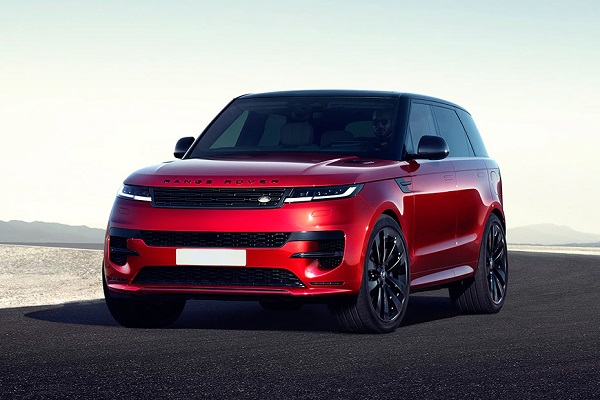
 4395 cc
4395 cc Multiple
Multiple